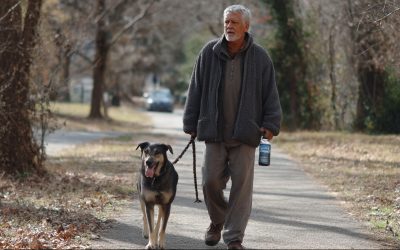In the heart of Birmingham, where the city’s pulse beats with resilience and community spirit, stories of recovery and renewal are unfolding quietly yet profoundly. One such narrative is that of Simon Petterson (name changed), whose journey from crisis to stability exemplifies the transformative power of integrated support systems. Simon’s path mirrors the broader impact of social prescribing initiatives across the UK, which have been bolstered by significant government funding to address mental health and social care needs.
When Simon Petterson (name changed) answered the phone from his hospital bed, it wasn’t how most first meetings go—but then again, Simon’s life hadn’t followed a simple script in quite some time. Recovering from a seizure linked to alcohol use, sofa-surfing at a friend’s flat, and recently told he wouldn’t be returning to his job, Simon was juggling homelessness, addiction, mental health struggles, and uncertainty about his future.
The GP referral had come through with urgency—Simon was living alone, experiencing anxiety, and under the care of alcohol support services. But he wasn’t attending his town-centre-based detox programme, largely because of anxiety about public transport. More troublingly, there were past suicide-related ambulance calls and a long-lost thread with the local mental health team.
Enter social prescriber Denise Nolan, who introduced herself gently but clearly. Simon, to his credit, opened up. He explained the strike at work had left him emotionally depleted. His current housing was temporary at best—he had to leave by 1st May. He was no longer in crisis, but nowhere near stable either.
Denise immediately took action. She connected Simon to Cranstoun, a local organisation providing support with both addiction and mental health. Within days, a case worker had been in touch, a care plan arranged, and a face-to-face appointment booked. On housing, Denise supported Simon through a conference call with Birmingham City Council. The result? Simon now had a login for the housing portal and—unexpectedly—a 12-month extension to his current accommodation, thanks to BCC liaising directly with his friend-landlord.
Simon is still attending CGL support groups twice a week and finds value in the sense of community there. “I like the people,” he said simply. It’s often that straightforward. Belonging helps.
There was more. Simon expressed interest in reapplying for PIP after a previous rejection. Denise guided him to request a new application form and referred him to New Heights for help with completing it—a small action, but one with real impact for someone rebuilding from the bottom.
While Simon’s story isn’t wrapped in a neat bow—his case remains open—it’s also full of movement. From sofa-surfing and hospital beds to steady housing and support networks, he is making strides. And importantly, he’s doing so with engagement, dignity, and a desire to move forward.
Simon’s journey underscores the profound impact of coordinated care and community support in addressing complex personal challenges. As social prescribing continues to gain momentum across the UK, stories like Simon’s highlight the importance of holistic approaches that prioritize individual needs, fostering resilience and hope in the face of adversity

CHALLENGES AT A GLANCE
- Alcohol Dependence
- Housing Crisis
- Mental Health
- Work Anxiety
- Social Isolation




0 Comments